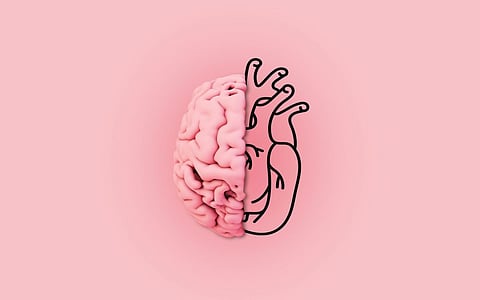WEDNESDAY, Oct. 23, 2024 (HealthDay News) -- Poor cardiovascular health profiles, captured by the American Heart Association Life's Essential 8 (LE8), are associated with an increased risk for developing a composite outcome relating to poor brain health, according to a study published online Oct. 23 in Neurology.
Santiago Clocchiatti-Tuozzo, M.D., from the Yale School of Medicine in New Haven, Connecticut, and colleagues examined whether LE8 profiles are associated with the composite risk for important clinical end points related to poor brain health in a two-stage prospective study using data from the U.K. Biobank and All of Us studies. The primary exposure was the LE8 score, categorized as optimal, intermediate, or poor.
The discovery stage included 316,127 U.K. Biobank participants. The researchers found that the unadjusted risk for the composite outcome (stroke, dementia, or late-life depression) was 0.7, 1.2, and 1.8 percent among participants with optimal, intermediate, and poor cardiovascular health, respectively. In multivariable Cox models, the association remained significant (hazard ratios, 1.37 and 2.11 for intermediate and poor, respectively, versus optimal cardiovascular health). The replication stage included 68,407 participants from All of Us. The unadjusted risk for the composite outcome was 2.8, 6.0, and 9.7 percent for those with optimal, intermediate, and poor cardiovascular health, respectively, during a mean follow-up of 2.9 years. In multivariable models, this association remained significant (hazard ratios, 1.35 and 1.94 for intermediate and poor, respectively, versus optimal cardiovascular health).
"These findings underscore the strong association between cardiovascular health during middle age, ascertained by the LE8, and a composite outcome of the most important diseases related to poor brain health," the authors write.
Abstract/Full Text (subscription or payment may be required)


